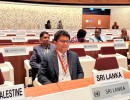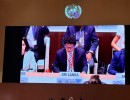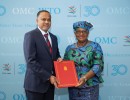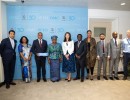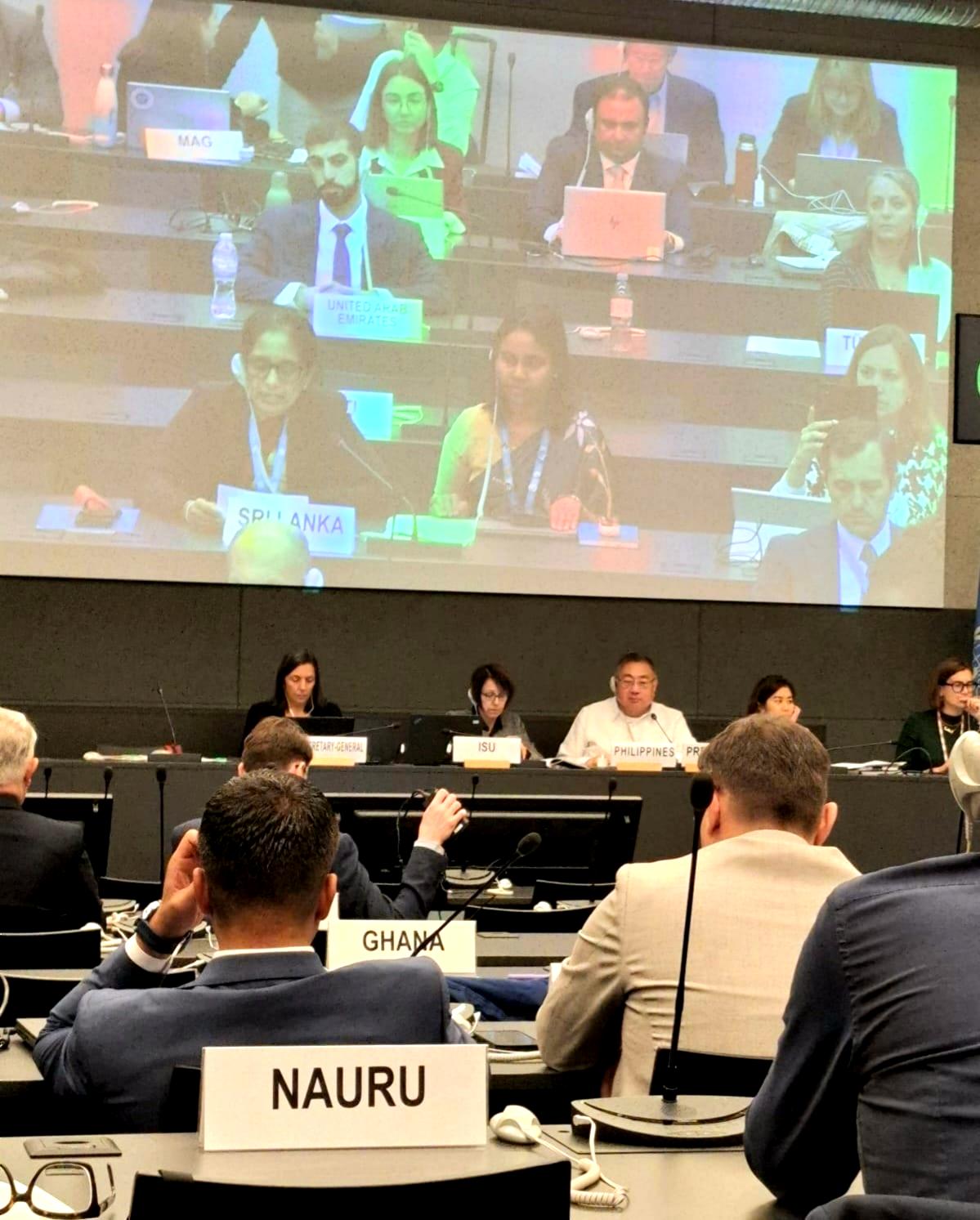
Mr. President
Distinguished Delegates
Sri Lanka extends its warm congratulations to Ambassador Carlos D. Sorreta, Permanent Representative of the Philippines for assuming the Presidency of the Thirteenth Meeting of States Parties to the Convention on Cluster Munitions. My delegation assures you Sri Lanka’s fullest support in achieving a productive and meaningful outcome of this meeting.
Mr. President,
Sri Lanka remains convinced that this Convention represents a significant achievement in international humanitarian law as well as in the global disarmament landscape due to its comprehensive approach in mitigating the humanitarian impact of cluster munitions in all aspects. Our presence here today reaffirms our enduring commitment towards a world free from the devastating impact of cluster munitions. We recall that the Convention on Cluster Munitions has protected countless civilian lives from indiscriminate and widespread harm caused by cluster munitions, since its entry into force.
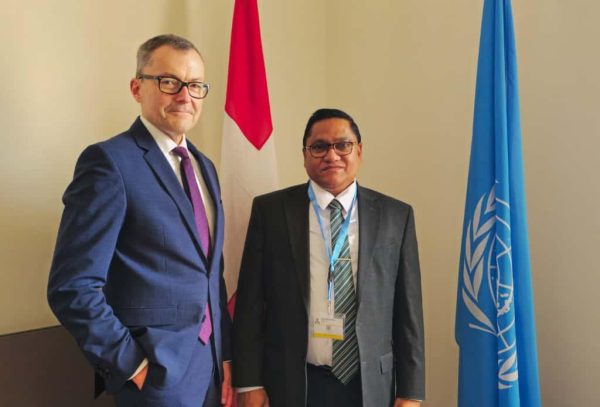
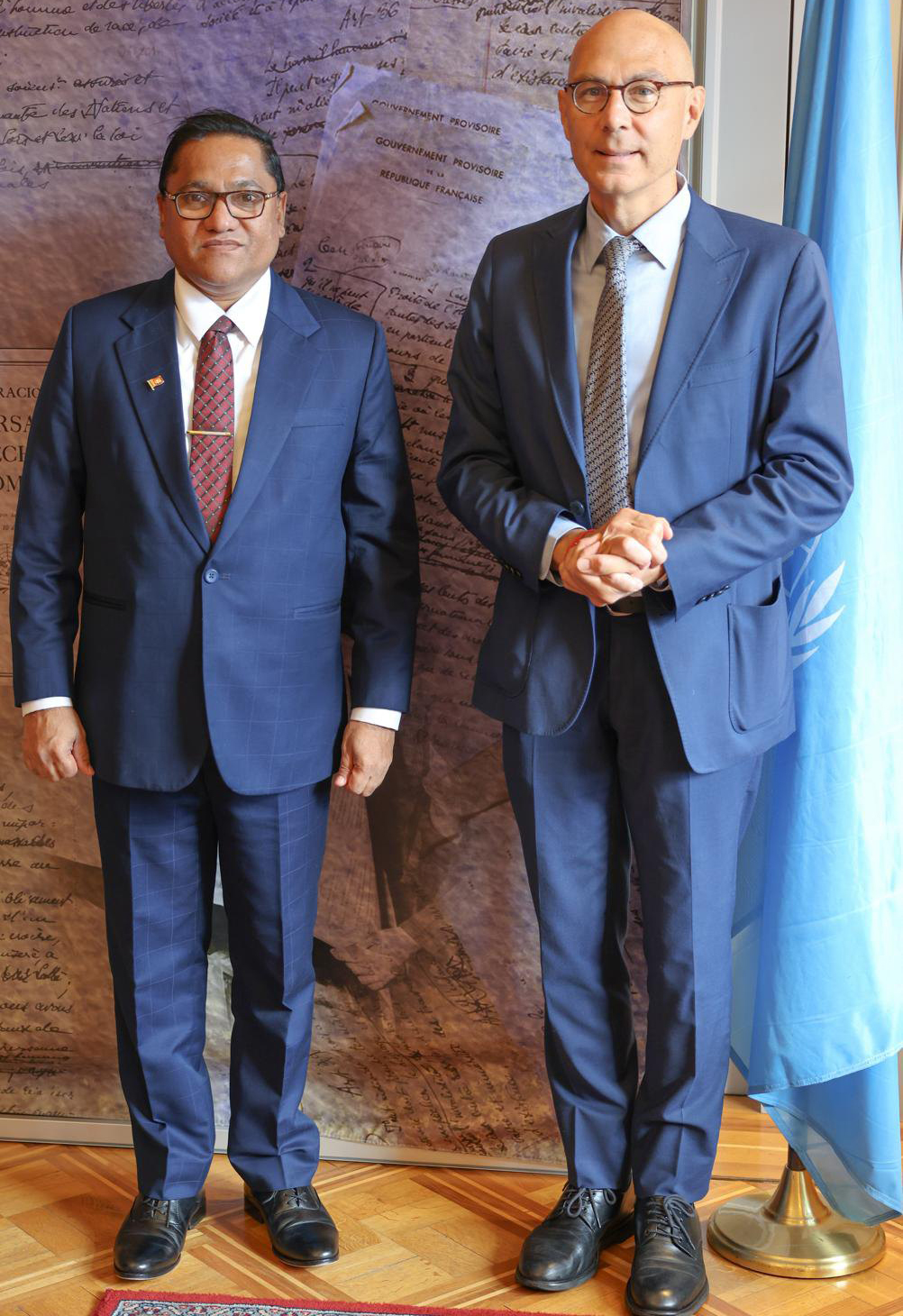
Minister of Foreign Affairs, Foreign Employment and Tourism, Vijitha Herath concluded his visit to Geneva where he addressed the 60th Session of the United Nations Human Rights Council (UNHRC) on September 8, 2025, delivering the Government statement during the Interactive Dialogue on Sri Lanka.
Minister Herath reiterated Sri Lanka’s commitment to achieving reconciliation through domestic processes and outlining the measures already taken by the Government for transformation to advance the rights and well-being of all Sri Lankans.
The Foreign Minister further reaffirmed Sri Lanka’s opposition to externally imposed mechanisms.
Addressing the 60th Session of the United Nations Human Rights Council (UNHRC) in Geneva, during the Interactive Dialogue (ID) on Sri Lanka on 08 September 2025, Minister of Foreign Affairs, Foreign Employment and Tourism, Vijitha Herath underlined the commitment and the political will of the Government for transformation in the country and to create a new political culture to advance the rights and well-being of all Sri Lankans. The Minister highlighted the progress made within a short period through the domestic processes towards building national unity and reconciliation while urging the Council to allow Sri Lanka time and space to achieve this objective.
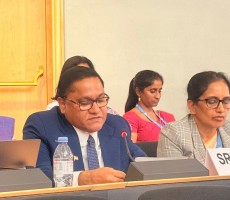
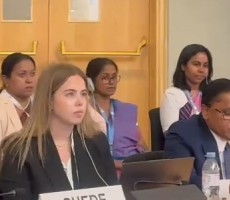
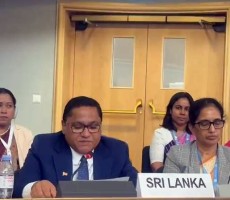
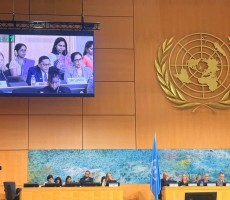
Mr. President,
High Commissioner,
Excellencies, ladies and gentlemen,
I speak to you on behalf of the Government of Sri Lanka at a time when my country has embarked on a historic journey towards transformational change. This journey is about democratic governance, human rights, inclusive economic growth and national unity.
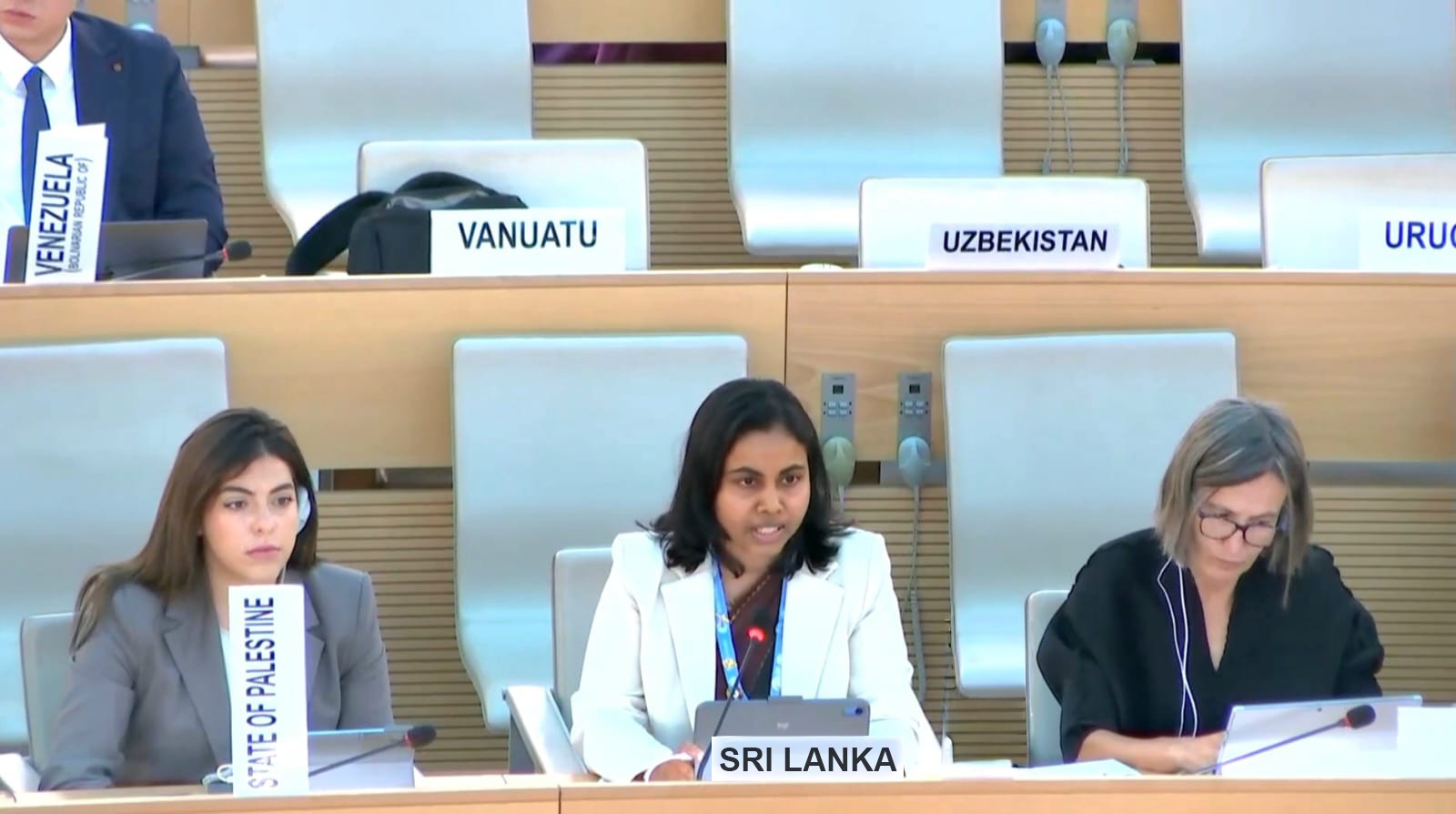
Measures on International Cooperation and Assistance (ICA), 12 August 2025
Mr Chair,
As this the first time that my delegation is taking the floor, Sri Lanka joins others in expressing sincere gratitude to you, Mr. Chair, for your leadership of this Working Group on strengthening the BWC, one of the cornerstones of the global disarmament architecture. Please be assured of the fullest support and cooperation of Sri Lanka for the success of the deliberations at this session.
I also take this opportunity to thank the Friends of Chair groups, members of the ISU for their comprehensive work carried out so far in an inclusive approach.
Minister of Environment, Hon. Dr. Dammika Patabendi interacted at the Informal Ministerial Roundtable on 'challenges at national level to address plastic pollution' on 12 August 2025, held during the second part of the fifth session of the Intergovernmental Negotiating Committee on Plastic Pollution (INC 5.2) which is being held from 05-14 August 2025 in Geneva, Switzerland.
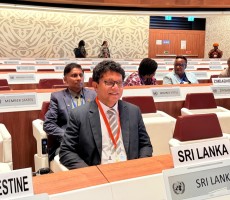
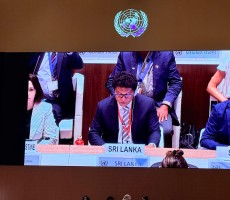
Distinguished Co-Chairs, Excellencies, Ladies and Gentlemen,
Sri Lanka extends its sincere appreciation to the Government of Switzerland for hosting this important meeting, and to the INC Secretariat for their tireless efforts and continued dedication towards the development of an international legally binding instrument on plastic pollution, including in the marine environment.
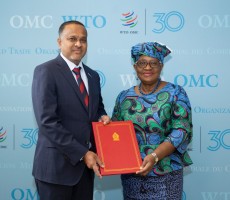
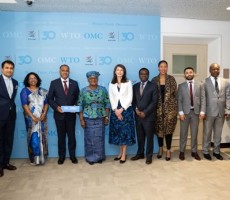
6 August 2025 — The Government of Sri Lanka has formally deposited its instrument of acceptance of the World Trade Organization (WTO) Agreement on Fisheries Subsidies, becoming one of the latest WTO members to take this important step towards protecting global marine resources. With this ratification, only four more acceptances are needed for the Agreement to enter into force.
This ratification reflects Sri Lanka’s steadfast commitment to sustainable ocean governance and responsible fisheries management, consistent with national policies articulated under the “Thriving Nation and a Beautiful Life” framework. The Agreement prohibits subsidies that contribute to illegal, unreported and unregulated (IUU) fishing and to the exploitation of overfished stocks — both critical concerns for coastal and island nations such as Sri Lanka.
Fisheries remain a cornerstone of Sri Lanka’s food security, export economy, and coastal livelihoods. By aligning national legislation, with global disciplines, Sri Lanka is strengthening its capacity to sustainably manage marine resources while enhancing its credibility in key international markets.
This step also supports Sri Lanka’s broader blue economy agenda and builds on recent international commitments, including signing into the UN Agreement on Biodiversity Beyond National Jurisdiction (BBNJ). The ratification enables Sri Lanka to access technical and financial assistance through the WTO Fisheries Fund, which supports developing countries in implementing sustainable fisheries practices.
The Agreement on Fisheries Subsidies, adopted by consensus at the WTO’s 12th Ministerial Conference in 2022, is the first WTO agreement with an explicit environmental sustainability focus. It is also a significant contribution toward achieving Sustainable Development Goal 14.6, which calls for the elimination of harmful fisheries subsidies.
Sri Lanka’s ratification underscores its leadership in global ocean stewardship and its readiness to engage in cooperative efforts to ensure the sustainability of marine ecosystems for current and future generations.
Permanent Mission of Sri Lanka
to the World Trade Organization in Geneva
07 August 2025
- Hon. (Dr.) Jagath Wickramaratne, Speaker of Parliament of Sri Lanka addressed the Sixth World Conference of Speakers of Parliament on 30 July 2025 at the Palais des Nations, Geneva, Switzerland
- Sri Lanka and Switzerland hold the Third Meeting of Experts on the Migration Partnership between the two countries
- Statement by Sri Lanka at the second session of the open-ended working group on the prevention of an arms race in outer space in all its aspects, 21-25 July 2025











